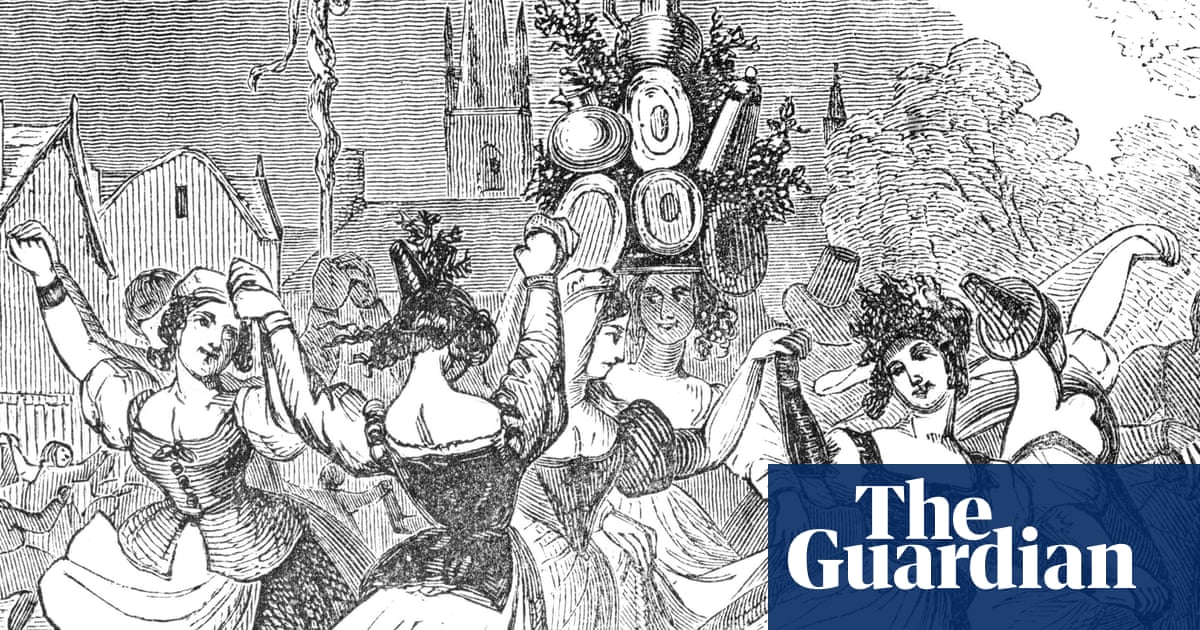A Little Trickerie is inspired by the real-life case of Elizabeth, the “Holy Maid of Leominster”, who in the early 16th century appeared as an angel in the priory there and was later unmasked as a fraud. Little is known of the motivation of the real Maid, and it’s the privilege of the historical fiction writer to explore such a lacuna – to imagine how Elizabeth might have lived, and what her voice might have sounded like. This Rosanna Pike does with great panache: white-haired adolescent Tibb Ingleby is frankly and unashamedly herself from the first page, dancing and whooping with her mother “with a big hoot-hoot” and confronting Ma’s well-to-do boyfriend, who looks “like a bun on two legs”.
Raised in vagabond manner by her unstable Ma during an age of tightening vagrancy laws, Tibb regards the society around whose periphery she drifts with a healthy cynicism. She’s endured many horrifying traumas (the death of her infant sister early in the novel is particularly devastating), and the effects are not easily shrugged off, settling as “that old friend called the black snake” around Tibb’s neck, “making my breath grow shallow”.
There’s a lot of historical fiction about plucky young girls, and it’s nice to come across a voice so singular and characterful – the rendering of Tibb, in all her spiky charm, elevates Pike’s prose. The peppering of phrases such as “under-the-blanket dance” (sex) and “toiling-away-to-get-to-the-Heaven-place” (Earth) might get too cute for some tastes, but I suspect Tibb will and should find many fans.
As vagrant and sideshow act, friend and outcast and lover, our heroine makes picaresque progress “across this Kingdom of England”, from the beaches of East Anglia to the credulous crowds of Leominster, “the land called Somerset” to “the country of York”. These travels in the company of a naive, idiosyncratic and blunderingly well-meaning narrator are reminiscent of Rose Tremain’s Restoration, and it’s nice to wander with Tibb, just as it is with the 17th‑century Robert Merivel. Both characters crave genuine love, security and happiness, which Tibb finds first with teenage runaway Ivo and then with beautiful, birthmarked Ambrose.
Early 16th-century England is portrayed as we might expect: religion is a racket to make men of God rich, while berating their obedient flocks that sex and sensuality are of the devil. Only Tibb and her ragtag group of misfits (“one patchwork man … one dark and good-to-look-at baker … one handsome vicar, one haystack-wielding Flemish woman, a tall and thin juggler named John and a false angel”) see past these artificial social mores to embrace all kinds of marginalisation, from queerness to physical difference. Her chosen family is placed in grave danger, however, when an audacious heist puts them up against the might of the church.
If Tibb sometimes comes over as relentlessly right-on, this is the nature of her and the point of the novel. I can’t help wondering, though, how much more interesting the grey area is: was the real Maid of Leominster so certain that organised religion was a hoax? The late medieval religious landscape was vivid, earnest, mystic and often hallucinatory: it strikes me that the blurred line between hoax and transcendent experience might have been more interesting to explore, rather than presenting an out-and-out denouncement of it.
However, that may be the concern of another book. Tibb was not created to probe the nuances of the early Tudor mentality: she stands for kindness, acceptance and the triumph of the underdog; and the historical context serves as a foil for this, an obstacle to watch her overcome. Better that a book is unapologetically itself, and A Little Trickerie is lovable, fun and emotionally juicy.
after newsletter promotion
